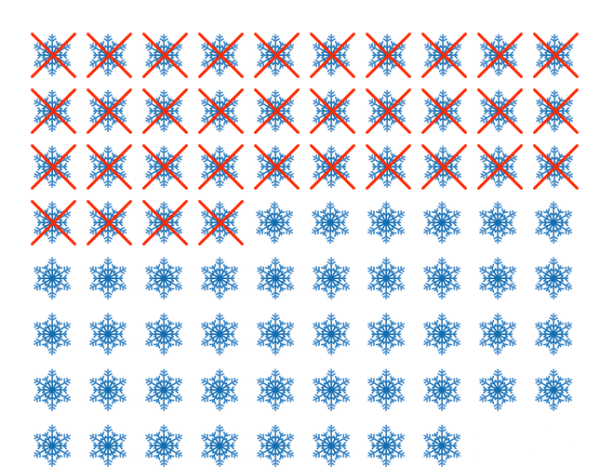Reflections, Relationships
After my Dad died unexpectedly at 60, I’ve really tried to appreciate my time more – but how do you appreciate something that feels like it’s endless and plentiful?
But really, how much time do you have left? With yourself, with your parents, with your friends?
Turns out, that really the wrong question. Although we live in a society focused on calendars, clocks, and hours in the day, that’s not how many of us actually live our lives.
We actually live our lives through experiences. Through seasons. Through evenings with friends, family reunions, annual ski trips, July 4ths, etc.
A great article by WaitButWhy got me thinking about this, especially when it comes to the remaining time with our parents.
Here’s a handy photo from the WaitButWhy Article:

Imagine you’re 34 and you’ve gone skiing with your family and more specifically, your parents every year since you were 4. Your parents are 30 years older (64) than you, and everyone typically lives to 78. And by age 70, everyone stops skiing because it’s too dangerous.
You absolutely LOVE these trips. And now, all of a sudden, you realize you have 14 more family ski trips with your mom and dad. And you only have 26 more trips before you have to stop because you’re too old.
You have used up nearly 70% of your ski trips with your parents.
How does that change your perspective?
So, the question becomes – are you satisfied with your experiences if it all ended sooner than you thought? Even sooner than the averages?
I know, this is a dumb question. This sounds like some millennial ‘YOLO’ stuff. We can’t just live our lives enjoying every moment right?
Right, life is tough, full of challenges but also ‘opportunities’, you’re born, you pay taxes, and then you die. Sounds awesome. Enjoy that!
I’m not trying to advocate for some euphoric bliss, just simply joy and content with what you have – in this moment, right here, right now.
If you’re feeling dissatisfied and unfulfilled, it’s not just going to magically disappear.
And if you’ve been feeling this way for a while, it’s not just going to change at the blink of an eye, because you quit your job or because you broke up with your SO.
It’s going to come from a change in perspective, a change in being, and a change in environment.
Now, that might sound pretty hard. Who wants to go through all that change?
But seriously…isn’t your life worth it? How much is your life worth to you?
Well that’s the problem – when you’re not enjoying your life and you feel like your just surviving it day by day, you actually come to not value your life. You actually see it as less valuable.
And that’s where the incredible value of coaching comes from. It’s incredibly rare to catapult yourself from just surviving to loving life.
I’ve met countless people who have told me point blank that they hate their life and felt like they were barely surviving. I’ve personally fet that way over the years.
And the only thing that gets you from the depths of despair (or just simply a feeling of boredom and monotony) is a change.
Know your true value and worth. You are an incredible person. Always have been and always will be.
Don’t waste your life. Get back to living and loving with everything you’ve got.

